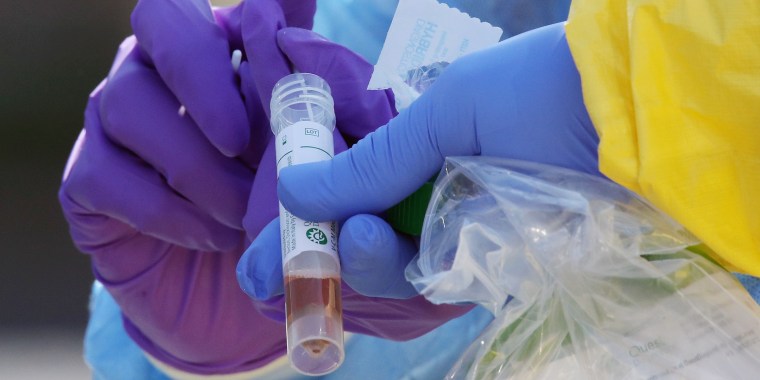There’s an unusual addition to the list of possible COVID-19 symptoms: A sudden loss of smell or taste may be a warning sign a person could be infected by the new coronavirus, European and U.S. experts said.
The American Academy of Otolaryngology on Sunday announced “rapidly accumulating” anecdotal evidence showed anosmia — the loss of smell — and dysgeusia — an altered sense of taste — were “significant symptoms” associated with COVID-19 when a patient had no other respiratory disease.
Many people, including Utah Jazz player Rudy Gobert who tested positive for COVID-19, are reporting these unsettling changes in their bodies.
The World Health Organization has seen "quite a few reports" of people losing their sense of smell and taste, and is looking into whether this is an early sign of the disease, said Dr. Maria Kerkhove during a WHO briefing Monday.
“Our senses of smell and taste are closely linked together and changes in these senses may occur from inflammation in the upper airway,” Dr. Kris Jatana, associate professor of otolaryngology — head and neck surgery at Nationwide Children's Hospital and Wexner Medical Center at Ohio State University, told TODAY.
This is usually related to more common conditions such as acute or chronic sinusitis and allergic rhinitis, he said, and many other viruses can also cause an altered sense of smell or taste.
“However, especially when these other conditions are not present, the possibility of a COVID-19 infection should be considered by medical professionals,” Jatana noted.
The discovery is important because if a patient mysteriously loses his or her sense of smell, the ear, nose and throat doctor's office may be the place where they first seek help, noted Dr. Rosemary Guerguerian, an emergency medicine physician and a medical fellow with the NBC News Health and Medical Unit, in an email.
The American Academy of Otolaryngology proposed these signs be added to the list of coronavirus screening tools and said they warranted “serious consideration” for self-isolation and testing of such patients.
The announcement came a day after ENT UK, an association that represents British ear, nose and throat doctors, issued a similar warning.
The group cited evidence from South Korea, China and Italy that showed “significant numbers” of patients with COVID-19 lost their sense of smell. In Germany, more than two out of three confirmed cases reportedly have anosmia. In South Korea, 30% of patients testing positive had it as their major presenting symptom in otherwise mild cases, ENT UK said.
"In young patients, they do not have any significant symptoms such as the cough and fever, but they may have just the loss of sense of smell and taste, which suggests that these viruses are lodging in the nose,” said Dr. Nirmal Kumar, an otolaryngologist and president of ENT UK, in an interview with Sky News.
Such patients should self-quarantine for seven days, ENT UK suggested. That time may allow an otherwise asymptomatic person to begin to show more obvious symptoms, or be done shedding the virus from their nose and throat, Guerguerian explained over email.
There's no formal study that supports the recommendations or proves asymptomatic people with anosmia can transmit the virus, she added. The recommendations are based on observations of clinical trends.
Other viruses that cause the common cold and other upper respiratory tract infections — including previously-identified coronaviruses — can also lead to the loss of sense of smell so it may not be surprising the new coronavirus would do the same, ENT UK noted.
When other viruses cause a loss of, or a reduced sense of smell or taste, it usually takes weeks to months to return, Jatana noted.

